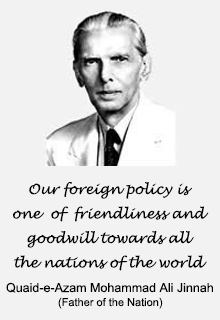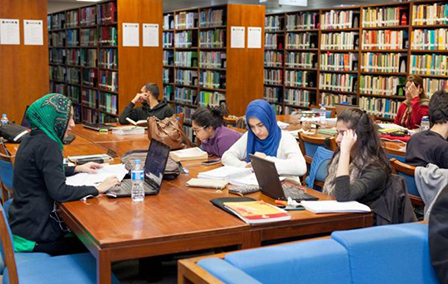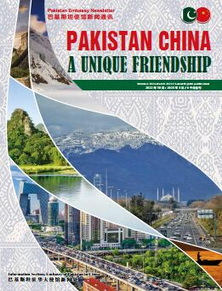

Pakistan Study Centers

Confucius Institute in Pakistan

Advisory for Students

Embassy College

Embassy of Pakistan Newsletter
News & Events
CPEC: charting a shared future
May 01,2018
By Muhammad Shehbaz Sharif
The two-day CPEC Summit held in Karachi was an incredible opportunity to showcase the true potential of a project that is so central to Pakistan’s future. The coming together of all stakeholders such as the federating units, academia, policy practitioners, foreign policy experts, and economists reiterated a broad consensus across Pakistan’s national opinions on CPEC being a game-changing project for the country.
During my address, I shared the experience and story of how Punjab has fared in the implementation of the CPEC projects; what challenges we faced and the benchmarks we set in making CPEC a reality.
CPEC and Gwadar
I also used the occasion to thank the Chinese government and people for their support to Pakistan via CPEC, especially President Xi Jinping, whose vision of the Belt and Road Initiative has brought about a new era of connectivity and corridors, connecting continents, countries and cultures.
The last six months have been very important for China, as the 19th Congress of the CPC, as well as the two recent sessions held last month inBeijing have strengthened the Xi Jinping Thought as the way forward for China’s progress and its role in the world.
While CPEC is the most significant developmental initiative in the history of Pakistan, I took the opportunity to tell the gathering, given the propaganda and misconceptions, what CPEC is not.
CPEC is not about one province, one party or one government. As the name denotes, the China-Pakistan Economic Corridor is about the whole of Pakistan, from Gwadar to Gilgit. CPEC is also not just about electricity, or energy, or highways, or other brick and mortar projects. It is about the transformation of Pakistan into a leading emerging economy, and it is also aboutall-round inclusive development in a transparent manner so that the less developed areas of Pakistan are able to reap the benefits of development.
CPEC is not about China and Pakistan alone, but CPEC is about connecting the region through economy and energy, ports and pipelines, roads and railways, with Pakistan as the hub of this emerging regionalism.
CPEC success proof of Pakistan-China friendship
The spirit of CPEC lies in strong, unwavering and robust people-to-people bond between our two brotherly countries. The welfare of the people remains the driving spirit behind this mammoth development package, ever announced in the history of the world that seeks to transform lives and build a bright future for the people of Pakistan.
Ever since assuming office in my second term, I have paid several visits to China. Each visit has been an amazing lesson in how China fought heavy odds to rise as the second global economic powerhouse and military power. I have been particularly struck by the warmth and hospitality of the people of China and the commitment of the Chinese leadership and the CPEC towards Pakistan and its peace, stability and socio-economic progress.
In order to smoothen the people-to-people bond and overcome the barrier of language, the Punjab government launched a multi-million-dollar Chinese scholarship programme whereby 500 students have been sent to China to study the Chinese language. The students will serve as a bridge between the peoples of our two countries.
We are also offering Chinese language courses here in the educational institutions in Punjab. Besides, a number of Centres of Excellenceon Chinese Studies have been set up in universities here.
Questions are often asked as to what has CPEC achieved so far, how is it changing lives for the better and how is it transforming Pakistan? Let me cite a few examples:
• CPEC has revived dead projects like Thar Coal, which had been talked about for the last quarter of a century, but nothing was there on the ground. Today youngThari women are driving dumper trucks and bulldozers, while coal is being mined and electricity generated through this indigenous coal production.
• Gwadar Port, which was a dream 25 years ago, today is a living reality, a bustling port, the centrepiece of CPEC, which lifted a million tonnes of cargo last year.
• The western route of CPEC today directly connects Quetta with Gwadar by a modern highway, with only 8 hours driving time.
• The Port Qasim power project in Sindh, and the Sahiwal power project in Punjab, both of which have been inaugurated, will help to resolve Pakistan’s decades-old energy crisis.
• The Orange Train will mark Lahore’s entry into the twenty-first century through a modern, efficient, state-of-the-art public transport system
• The Sukhi Kinari project is an important element in the resolution of the Khyber-Pakhtunkhwa energy crisis.
• The Karakoram Highway’s expansion and modernisation, connecting Pakistan through land route with China, is a highway of hope, a highway of progress, a highway of prosperity.
A vivid demonstration of the national consensus on CPEC was the fact that during the first BRI Summit in Beijing in May 2017, all the chief ministers of the four provinces were part ofthe Pakistan’s delegation, led by the Prime Minister of Pakistan, in a forceful demonstration of unity of purpose on CPEC. During this visit, I visited the headquarters of National Development and Reform Commission (NDRC) in Beijing along with Sindh CM Murad Ali Shah and met the NDRC vice-chairman. As a result of our meeting, the financing for Karachi Circular Mass Transit Project was approved.
We in Punjab have also made our own contribution to making CPEC a success, and I am grateful to our Chinese friends who have been so kind as to label some of our successes as the “Punjab Speed”.
But actually, this is a tribute to the creativity, hard work and resilience of the people of Pakistan, irrespective of whether they are in Punjab, Balochistan, Sindh, Khyber-Pakhtunkhwa, Gilgit-Baltistan, Azad Jammu and Kashmir or Fata.
This only goes to show that if you have the right vision, and if you can muster up the will to pursue that vision with continuity, plus a “Can Do” approach, everything is doable and achievable.
In this regard, I am reminded of the famous saying of Chairman Mao, which says: “Nothing is hard in thisworld, if you dare to scale the heights!” Our friendship, our strategic partnership, has been forged into a camaraderie between Pakistan and China, which President Xi Jinping rightly terms, is a bond between “Iron Brothers”.
In building CPEC, we will Inshallah scale the heights of poverty, unemployment, energy shortages, and build a better tomorrow, not just for the people of Pakistan but for the region as a whole. In this quest for a better tomorrow, Pakistan and China will march forward hand in hand, to bring about a transformation that will benefit all our people.
Published in The Express Tribune, May 1st, 2018.


.jpg)
.jpg)
.jpg)
.jpg)
.jpg)
.jpg)
.jpg)







